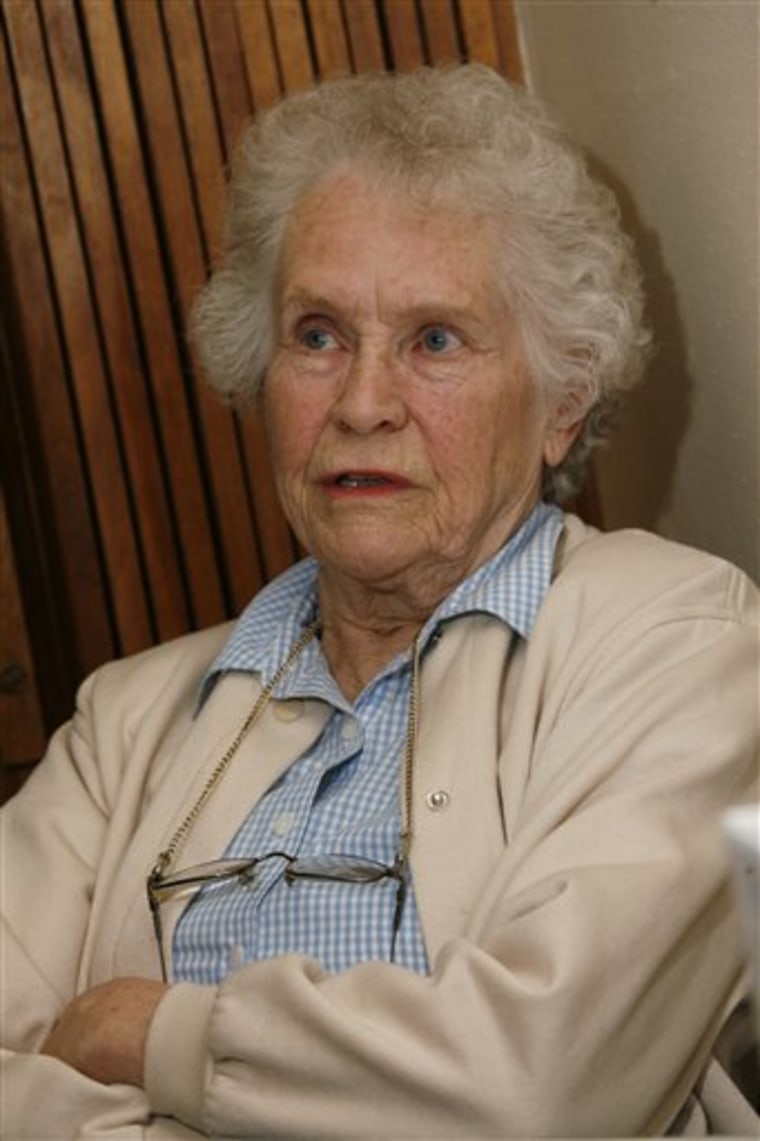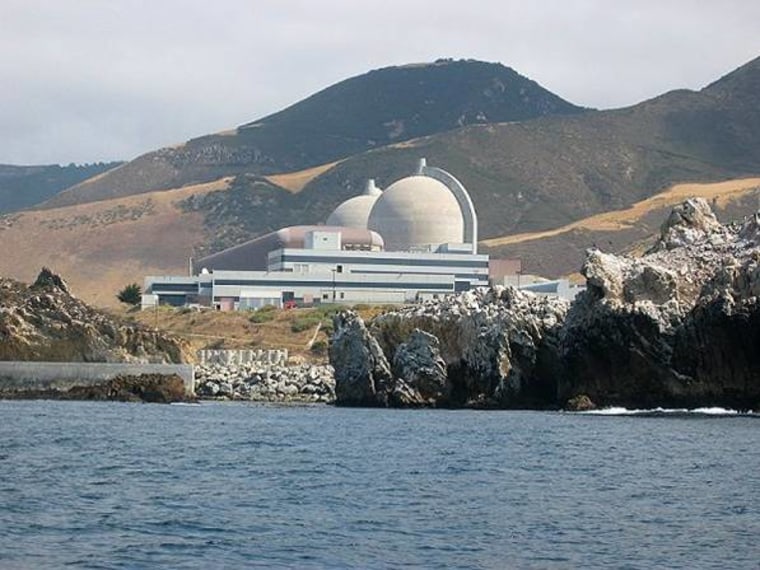At the western edge of a largely dormant anti-nuke movement, three generations of mothers are tilting at nuclear reactors. But their mission is less quixotic than it might appear.
Wielding a novel argument about the potential impact of a terrorist attack on nuclear facilities, San Luis Obispo Mothers for Peace is aiming to set legal precedent requiring tougher environmental reviews for nuclear power plants and radioactive waste storage nationwide.
It's the latest chapter in a long-running battle that pits the all-volunteer group of aging hippies, activists and teachers against the federal government, Pacific Gas and Electric Co., and PG&E's Diablo Canyon nuclear power plant, nestled on a gorgeous stretch of coastline nearby.
"This whole town — it's like this veil is over our town. Of denial, is what it is," said Mothers for Peace member Linda Seeley as the group met recently in a comfy living room patrolled by a cat.
Outside, the sun shone brightly on flowers, wind chimes and Green Party lawn signs. "People come here and they think they're living in paradise," Seeley said. "And we have highly lethal poison eight miles from us."
PG&E maintains that its plant, which began operating in the mid-1980s and supplies 10 percent of California's electricity, is perfectly safe. And the company questions Mothers for Peace's motives in opposing its radioactive waste storage plans.
"Their goal is stop nuclear power. Their goal is not to make a facility safer or to make sure that all aspects are adequately addressed," said Jearl Strickland, a manager at Diablo Canyon.
The latest dispute arises because Diablo Canyon, like scores of other nuclear plants nationwide, is running out of room in its cooling ponds for highly radioactive spent fuel.
'Dry cask' storage planned
So the plant is busy constructing a "dry cask" storage facility where radioactive waste could be stowed for decades in giant, silo-like structures bolted to a concrete pad.

Mothers for Peace contends the Nuclear Regulatory Commission approved the storage plan without legally required studies of what might happen to the environment and human health if the casks were breached by terrorists.
In an impressive achievement for an outside group with little initial expertise, Mothers for Peace got a federal court to agree with its argument, and the court ordered the NRC to look at the issue for the first time.
But in the view of Mothers for Peace, the NRC's subsequent conclusion — that there was little chance of a terror attack or insignificant environmental impact from one — was inadequate. Mothers for Peace went back to the 9th U.S. Circuit Court of Appeals in December to ask the court to require a more in-depth review.
"We are doing the NRC's job for it, because they won't do it," said Jane Swanson, a French horn player in a local symphony.
The NRC says it did what was required.
Mothers for Peace formed around opposition to the Vietnam War and a few members remain from those days. They've been joined by equally committed newer arrivals.
"It's amazing what they achieve for their size. I think they're fighting outside their weight class," said Dave Lochbaum, of the Union of Concerned Scientists, which sometimes works with Mothers for Peace. "Their work today has already had an impact."
The challenge from Mothers for Peace comes at a time of renewed interest in nuclear power as an energy source that does not emit greenhouse gases.
Nuclear power currently accounts for about 20 percent of the U.S. electricity supply, but no new plants have been sited in this country since the 1970s.
Even as it seeks to grow, the nuclear industry is facing the challenge of what to do with 50,000 tons of radioactive waste. The government's plan to build a central repository in Nevada has been perpetually delayed, forcing plant operators to turn to dry cask storage as an interim measure.
If Mothers for Peace has its way, no new plant would get built, nor storage facility approved, without an in-depth review of the environmental impacts if terrorists attacked such facilities.
Adding that level of review is an unwelcome prospect for the industry, as it would add another, potentially steep barrier to getting projects under way.
The ultimate ramifications of the Mothers for Peace challenge remain to be seen. After its initial loss in the 9th Circuit in 2006, PG&E unsuccessfully tried to get the U.S. Supreme Court to take up the case. Federal regulators then decided to obey the 9th Circuit's order, but only in the nine western states in the court's jurisdiction.
Meanwhile, challenges on similar grounds were filed elsewhere, setting up the potential for a conflicting opinion from another federal appeals court that would have to be resolved in the Supreme Court. The nuclear industry might hope to get a more favorable outcome in that setting than from the 9th Circuit, viewed as liberal-leaning — but Mothers for Peace might also be in reach of its goal of setting new precedent for the nuclear power industry.
"People think it's mothers against Diablo. It's not. It's mothers against radioactive waste," Swanson said. "It's mothers for a nuclear-free nation. We'd like to be for a nuclear-free world, too."
